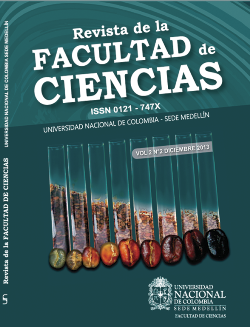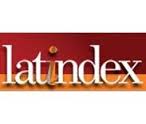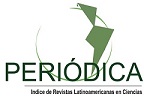Tratamiento sostenible de aguas. Inicio y consolidación de una línea de trabajo con vocación de tecnología arpopiada. Una experiencia en la Universidad de Extremadura (España)
Sustainable water treatment. Starting up and reinforcing a researching line on appropriate technology. The experience from University of Extremadura (Spain)
Keywords:
Investigación aplicada, tecnología apropiada, tratamiento de aguas (es)Applied investigation, appropriate technology, water treatment (en)
Downloads
En el área de Ingeniería Química de la Universidad de Extremadura (UEx) se vienen desarrollando desde el año 2003 trabajos de investigación en el tratamiento de aguas con productos naturales en clave de sostenibilidad ambiental y económica y en sintonía con la sostenibilidad humana. A lo largo de estos diez años se han intentado conjugar los indicadores habituales de rendimiento académico con la tensión constante por la aplicabilidad de resultados y el carácter apropiado de las tecnologías en desarrollo. Este trabajo presenta un balance y análisis del recorrido de esta línea de investigación, que ha sido pionera en el Departamento donde se inscribe y que debe enfrentar todavía muchos retos hasta su completa consolidación como opción competitiva con otras en el panorama investigador extremeño.
The Chemical Engineering Area at the University of Extremadura has focused some of its researching efforts in developing a sustainable water treatment line by means of natural products. This investigation has tried to combine scientic and sustainability concepts according to the human sustainability paradigm since 2003. The academic aspects regarding publishing, public defense of Final Degree Dissertations and many other actions have been harmonized under the scope of Appropriate Technology. This work presents a kind of balance and analysis of the current state of this researching line, which was the first one in the Department of Chemical Engineering and Physical Chemistry. There are still many challenges for its total implementation as a competitive option amongst others in the big picture of the regional investigation.
References
Botello, E.; Moreno Losada, J.; Sánchez Martín, J. y Zamora Polo, F. (coords.) (2013), Ética en la Universidad. Transversalizar las competencias éticas en el Espacio Europeo de Educación Superior, ENTIMEMA, Madrid.
Cruz Martínez, C. (2012), La Investigación para el Desarrollo (I>D) en las universidades públicas españolas dentro del Séptimo Programa Marco de la Unión Europea, IUDC-UCM, Madrid.
Dorf, R.C. (2001), Technology, Humans and Society: Toward a sustainable world, Academic Press, San Diego.
España. (1998), Plan de Estudios conducentes al título de Ingeniero Químico. Boletín Ocial del Estado. 271. Jueves 12 de noviembre.
Román Suero, S.; Sánchez Martín, J.; Zamora Polo, F. (2013), Opportunities given by Final Degree Dissertations inside the EHEA to enhance ethical learning in technical education. European Journal of Engineering Education, 38(2), 149-158.
Sánchez Martín, J. (2010), Aplicación de productos naturales para el tratamiento de aguas. Empleo en países en desarrollo, Entimema, Madrid.
Unceta, K.. (2007), La cooperación al desarrollo en las universidades españolas, Agencia Española de Cooperación Internacional, Madrid.
Universidad de Extremadura. (2010), Memoria de Investigación de la Universidad de Extremadura. Anualidad 2008. Vicerrectorado de Investigación, Innovación e Infraestructura Científica de la Universidad de Extremadura. En www.unex.es. [Consultada el 10 de septiembre de 2013]
Universidad de Extremadura. (2004), Normativa de la asignatura Proyecto Fin de Carrera de 5º Curso de la titulación de Ingeniero Químico. Aprobada por la Junta de Facultad de Ciencias el 12 de julio de 2004. En www.unex.es. [Consultada el 10 de septiembre de 2013]
Universidad de Extremadura. (2005), Normativa de la Universidad Politécnica de Madrid sobre acciones en cooperación para el desarrollo. En www.upm.es. [Consultada el 12 de septiembre de 2013]
How to Cite
APA
ACM
ACS
ABNT
Chicago
Harvard
IEEE
MLA
Turabian
Vancouver
Download Citation
Article abstract page views
Downloads
License
The authors or copyright holders of each paper confer to the Journal of the Faculty of Sciences of Universidad Nacional de Colombia a non-exclusive, limited and free authorization on the paper that, once evaluated and approved, is sent for its subsequent publication in accordance with the following characteristics:
- The corrected version is sent according to the suggestions of the evaluators and it is clarified that the paper mentioned is an unpublished document on which the rights are authorized and full responsibility is assumed for the content of the work before both the Journal of the Faculty of Sciences, Universidad Nacional de Colombia and third parties.
- The authorization granted to the Journal will be in force from the date it is included in the respective volume and number of the Journal of the Faculty of Sciences in the Open Journal Systems and on the Journal’s home page (https://revistas.unal.edu.co/index.php/rfc/index), as well as in the different databases and data indexes in which the publication is indexed.
- The authors authorize the Journal of the Faculty of Sciences of Universidad Nacional de Colombia to publish the document in the format in which it is required (printed, digital, electronic or any other known or to be known) and authorize the Journal of the Faculty of Sciences to include the work in the indexes and search engines deemed necessary to promote its diffusion.
- The authors accept that the authorization is given free of charge, and therefore they waive any right to receive any emolument for the publication, distribution, public communication, and any other use made under the terms of this authorization.
- All the contents of the Journal of the Faculty of Sciences are published under the Creative Commons Attribution – Non-commercial – Without Derivative 4.0.License
MODEL LETTER OF PRESENTATION and TRANSFER OF COPYRIGHTS
Personal data processing policy
The names and email addresses entered in this Journal will be used exclusively for the purposes set out in it and will not be provided to third parties or used for other purposes.




















